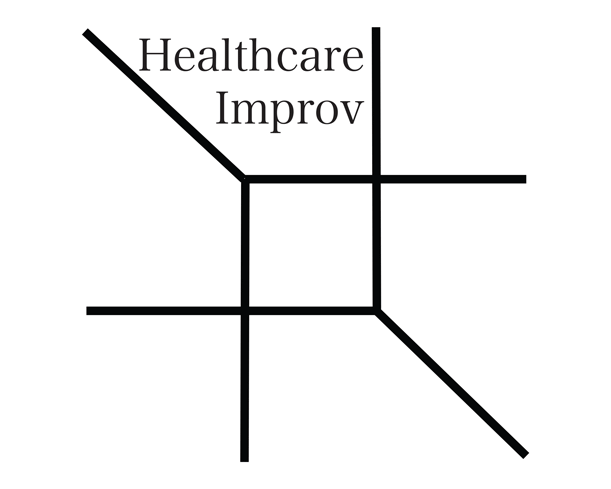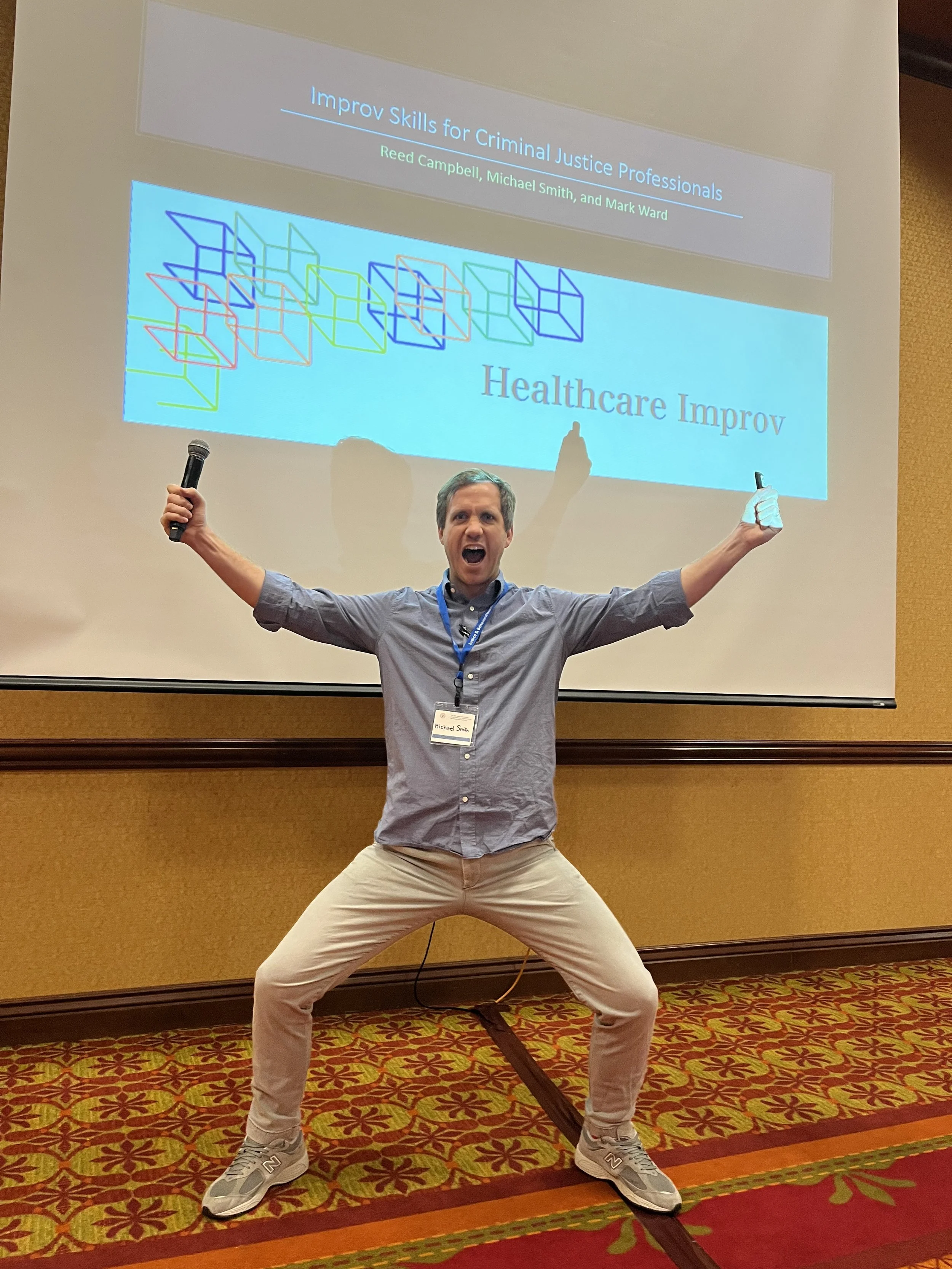The Grass is Always Growing
I am off service! It was a very good month and I enjoy seeing patients while I am doing it. I also enjoy not being on service right now and am excited to catch up on all the things that I was putting off (my lawn…my God my lawn looks bad). Also, this Friday is the level 1 Intro to Improv for Healthcare Workers class show at 7:00P at The Backline in Omaha, NE. Come check it!
Improv life!
My recent entries have been about ideas learned from teaching the aforementioned Level 1 class. It has been fun to watch as the group develops both individually and as a unit. When the class started, they would go out on stage and the scene would either go nowhere or it would go everywhere. The fear of making choices was evident or the response to that fear was evident as too many choices were made. Having recently had the Omaha Comedy Fest, I would remind the group that the people who perform improv at the highest level keep scenes and ideas remarkably simple eventually building something more complex. The improv advice for this is Play to the Most Important Thing. This means that in each scene, find what is fun or interesting or whatever your purpose is, then play with that thing. Could be said that you find The Game in each scene. Each scene is an opportunity to look for and understand what the most important connection was. Then in the next scene, apply it to a different situation in a heightened way. In fact, in the description of the Level 1 class, they say explicitly that you will learn to find what is fun about a scene and have more fun with it. That is what we work on in Level 1. Embracing the chaos and uncertainty felt when first stepping out onto the stage and making sense of what is created. The only way to do this is to practice playing to the most important thing. For most people, it is not the natural response. Most people fall back on their tendencies that keep them safe amid that sense of chaos on stage. Interestingly enough, those same tendencies designed to keep people safe, just make things worse on stage and increase the chaos. It takes practice (hopefully 7 is enough since that is how many classes they will have!) to settle the fears and the over correction of the fear to learn to respond honestly to the scene’s most important idea and choose fun. It has been fun to see how this group has developed an ability to cut through the chaos of being on stage to pick what is fun with a scene and have fun together
Application to daily life
Finding the most important idea to have fun with in a scene has so many connections to my day-to-day life personally and professionally. First, the direct connection of the interactions I have with the people in my life, be it patients, colleagues, my wife, my kids, or even strangers. Most of these interactions lack the chaos of standing on stage unsure what to say, yet the skills to find what is most important and discuss that is absolutely necessary. An interaction with a patient can feel chaotic. I often teach my students and internal medicine residents that moving forward, the whole job of a physician will be to prioritize information. My whole job is essentially playing to the most important thing. Patients have access to all the information that I do. Students have access to all the medical information I use to make medical decisions. What I do is come up with a game plan to address the most pressing issues first. Also, many times, what is important to me is not important to the patient. If I try to force my priorities on the patient, it most often leads to them ignoring my plan, which is a fair response. So it is imperative at my job that I find the most important thing and participate in building a reality with them that addresses the most important thing. Often the goal of improv is humor and having fun, whereas in the hospital addressing the most important thing with my patients or learners creates meaningful experiences using the same skills used to create humor on the improv stage. I want to find what was most important about a new experience and take that to my next experience but with more of what I find meaningful. The practical application to life is spelled out nicely in the book Essentialism by Greg Mckeown, and improv has been a way to practice this skill in the micro so I am better able to do it in the macro.
Scaling the skills upward
The macro version is even more important to me. When I am on service, seeing patients every day in the hospital, it is pretty easy for me to play to the most important thing, taking care of patients obviously. Then anything after that is usually deadline based that again makes the decision for me. The only choices that I make are the deadlines to ignore, like the deadline to mow the lawn was ignored, the deadline for speaking at the conference last Thursday was appropriately not ignored.
Armed with a microphone, slide clicker, and a love of improv based skills workshops!
As a lifelong procrastinator, I am used to operating in the format of deadline based scheduling. This coming month, I have a few deadlines, but mostly I will have to decide the most important thing to do. If I am able to recognize what the most important thing is, then I can make the decision to have fun or create meaningful experiences. If I am not intentional about playing to the most important thing, I loaf around the house and my office or I try to do too many easy tasks. Either way, nothing meaningful gets completed. I must first figure out what is important amid the chaos of my life. This skill can then be used again when life gets busy as lots of people give me deadlines and timeframes for tasks outside of caring for patients. I can very easily fill my day checking the boxes on the tasks of others, which ends up creating a dearth of meaning in my life. If I can know what is most important to me and why, then I can honestly communicate my ability to meet their deadlines in the context of what is important to me. The grass is always growing
Call to action!
This week, an improv in real life activity would be to think about what was the most important part of a conversation you had with a friend? What about with a colleague or at work? Are there any patterns that develop? Was the most important thing always what you spent the most time on? What happens when you consciously try to play to the most important thing in any of your conversations? Share your experience below!


